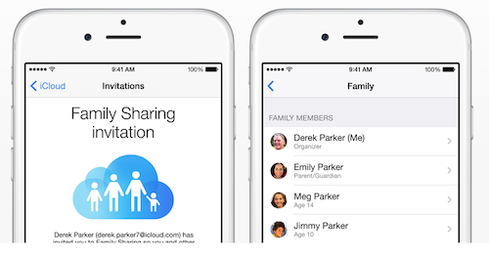Apple Pay: Where To Use ItApple Pay: Where To Use It
Apple launches mobile payment service. Here's what you need to know.


10 Great iOS 8 Features
10 Great iOS 8 Features (Click image for larger view and slideshow.)
If you own an iPhone 6 or iPhone 6 Plus, you'll be able to use your smartphone to make payments at select retailers beginning Monday. The capability arrives with iOS 8.1, which should become available from Apple by midday.
Apple may be late to the mobile payments game, but it has the potential to serve as a catalyst for the industry. Apple Pay may turn the tide for smartphone-based payments. Here's how it works:
Apple Pay is limited to just four devices at launch: the iPhone 6 and iPhone 6 Plus, and the iPad Air 2 and iPad Mini 3. Why these four? Because they include Touch ID fingerprint sensors. iPhone and iPad owners can use a fingerprint to make payments. Further, the two iPhones are the only devices that will be able to make payments at retailers because they include the necessary NFC radio inside. The new iPad's don't have NFC radios, but they can still use Apple Pay for in-app and online purchases. (The Apple Watch will also support Apple Pay, but the watch doesn't go on sale until next year.) iOS 8.1 is mandatory. It turns on the service and resolves a number of ongoing bugs with Apple's latest mobile operating system. The update will likely arrive around 1 p.m. Eastern Time.
With the new operating system and proper hardware in hand, users will need to assign a credit card to Apple Pay. Users can select the card already associated with their iTunes account and add it (and others) to the Passport application on their device. At launch, MasterCard, Visa, and American Express are supporting Apple Pay, along with dozens of banks, including American Express, Bank of America, Capital One Bank, Chase, Citi, and Wells Fargo. Apple said as many as 500 banks will support Apple Pay by early next year.
[For more on mobile tech trends, see This Week In 60 Seconds: Google Phones, Mobile Trading, & More.]
Worried about your financial and personal details? Relax, says Apple. "[Apple] doesn't collect any transaction information that can be tied back to a user, and payment transactions are between the user, the merchant, and the user's bank," the company explained in a statement. Apple doesn't store users' purchase histories, which means it retains nothing about the store, location, price, or goods involved in the transactions.
Further, the iPhone 6 and iPhone 6 Plus don't store credit card numbers locally. Instead, Apple creates a unique Device Account Number that is encrypted and stored on the Secure Element of the smartphone. Apple says these two components are walled off from iOS and never backed up to iCloud. Each and every transaction is given its own unique code.
"Our team has worked incredibly hard to make Apple Pay private and secure, with the simplicity of a single touch of your finger," said Eddy Cue, Apple's senior VP of Internet Software and Services, in a press release.
Where can you use Apple Pay? All 262 Apple Stores in the US will support Apple Pay beginning today. A significant number of other retailers are also supporting Apple Pay at launch, including Aéropostale, American Eagle Outfitters, Babies 'R Us, BJ's Wholesale Club, Bloomingdale's, Champs Sports, Chevron and Texaco retail stores, Disney Store, Duane Reade, Footaction, Foot Locker brands, Macy's, McDonald's, Nike, Office Depot, Panera Bread, Petco, RadioShack, SIX:02, Sports Authority, Subway, Toys'R'Us, Walgreens, Wegmans, and Whole Foods Market. Apple says more retailers will add support over the coming months. Apple claims Apple Pay will be available at 220,000 locations, but it's not clear how many of those locations will go live on launch day.
In addition to retail stores, a number of apps will support Apple Pay beginning today, such as the Apple Store app, Groupon, HotelTonight, Lyft, OpenTable, Target, and Uber. Apple says many more will support Apple Pay for in-app payments by the end of the year, including Airbnb, Starbucks, and Ticketmaster.
Whether or not Apple Pay will revolutionize on the mobile payments industry is debatable. Either way, it should deliver a good kick in the pants.
More information on Apple Pay is available here. Do you plan to give Apple Pay a shot? Let us know in the comments section.
The Internet of Things demands reliable connectivity, but standards remain up in the air. Here's how to kick your IoT strategy into high gear. Get the new IoT Goes Mobile issue of information Tech Digest today. (Free registration required.)
About the Author
You May Also Like






